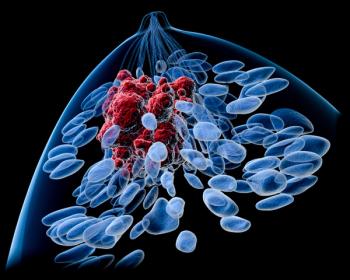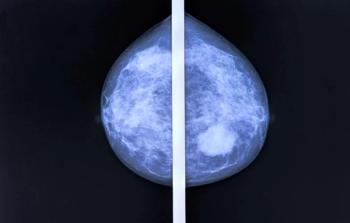
A secondary analysis of the COACH study revealed that a geriatric assessment–guided intervention increased the number of comorbidity-related discussions between patients and providers.

A secondary analysis of the COACH study revealed that a geriatric assessment–guided intervention increased the number of comorbidity-related discussions between patients and providers.

The update is in agreement with the FDA approval of a labeling supplement in June 2021 to the United States Prescribing Information for neratinib in HER2-positive breast cancer.

A newly designed model will outline what genetic patterns put men with prostate cancer at an increased risk of toxic side effects.

Tebentafusp is now the first FDA-approved therapy to treat unresectable or metastatic uveal melanoma.

Oncology Home-Hospitalization may represent a feasible alternative to standard ambulatory care and allow patients to spend significantly less time in the outpatient clinic.

An expert from Seattle Cancer Care Alliance highlights key skills in nurse navigation.

New data suggest that patients undergoing immunotherapy achieved better survival outcomes after reporting cutaneous immune-related adverse events.

Encouraging response rates were observed among patients with BRAF V600E–mutant metastatic colorectal cancer who received a triplet regimen of nivolumab, encorafenib, and cetuximab.

In a 12-month follow-up, the experimental regimen continued to provide clinical benefit to patients with esophageal cancer without compromising quality of life or exhibiting an unmanageable safety profile.

Patients with HER2-positive gastric cancer or gastroesophageal junction (GEJ) adenocarcinoma experienced a 40% reduced risk of mortality with fam-trastuzumab deruxtecan-nxki, compared with patients who received standard therapy.

Pembrolizumab plus chemotherapy did not induce clinically meaningful survival benefit, compared with chemotherapy alone, in patients with advanced gastric or gastroesophageal junction adenocarcinoma and a PD-L1 combined positive score of 1 or higher.

The presence of Arthrobacter and fatty acid metabolism pathways in gut microbiomes may be linked to an increased risk of skin-related adverse events (AEs) in patients with advanced gastric cancer.

Checkpoint inhibitors may have clinical utility in BTC based on immunogenic features of the disease; however, limited clinical activity has been observed with single-agent therapy in the advanced setting.

Pending FDA approval, the dual immunotherapy combination could provide patients with a new treatment option which would not require any further safety requirements prior to initiation.

Janelle Wagner, RN, OCN, Senior Manager of Patient Navigation Program for Community Sites, discusses the challenges and rewards of nurse navigation in oncology.

A supplemental biologics license application has been granted to trastuzumab deruxtecan-nxki for the treatment of adult patients with select HER2-positive breast cancer.

As the HPV vaccine becomes more prevalent, cervical cancer rates are expected to decrease significantly by 2030. However, this trend may differ across socioeconomic communities.

A patient-reported outcome survey highlighted quality-of-life gaps in breast cancer survivorship.

Ibrutinib plus rituximab is effective, easy to administer, and removes the need for chemotherapy in older patients, say experts.

In this episode of “The Vitals,” 2 veteran oncology nurses discuss the value of mentorship—particularly for novice nurses.

An expert discusses the implications of a subgroup analysis of the DESTINY-BREAST03 trial, which highlighted the efficacy of trastuzumab deruxtecan in HER2-positive metastatic breast cancer.

Oral decitabine, an oral fixed-dose of combination decitabine and CDA inhibitor cedazuridine, is an FDA-approved therapy for patients with lower-risk myelodysplastic syndromes.

Besides education and emotional support, the newly launched program offers personalized services including surgical interventions, hormone replacement therapy, and penile low-intensity shockwave therapy, to help patients heal from their cancer treatments.

An expert from The University of Texas MD Anderson Cancer Center highlights findings demonstrating the impact that diet and probiotics have in immunotherapy responses.

Pembrolizumab was associated with the first positive clinical trial outcomes in the adjuvant setting of non–small-cell lung cancer.

Early detection is key to improving prognosis and achieving better outcomes for patients.

Recently presented findings demonstrate that aspacytarabine may represent a viable treatment option for various subsets of patients with acute myeloid leukemia.

New data support increased fiber consumption and decreased probiotic use among patients receiving immunotherapy.

Compared with other antibody-drug conjugates, datopotamab deruxtecan was associated with lower rates of neutropenia, pneumonitis, and hematologic toxicity.

Seasoned oncology nurses share how the COVID-19 pandemic has affected the standard of care at their institution, the consequences of the staffing shortage, and how they believe the oncology community can work together to create a better working environment.